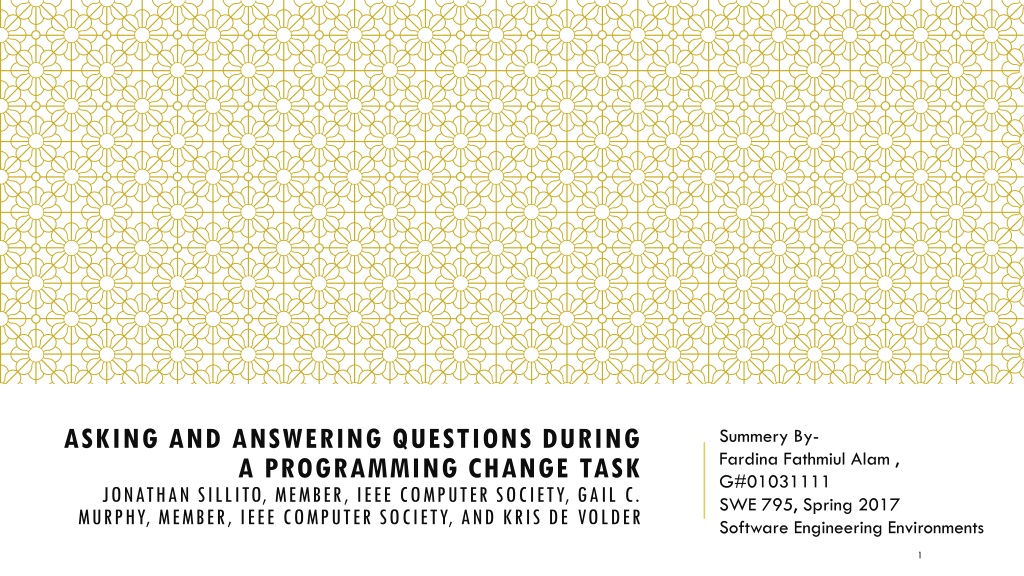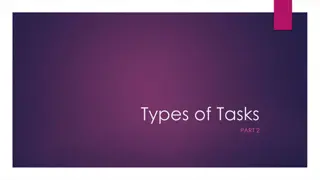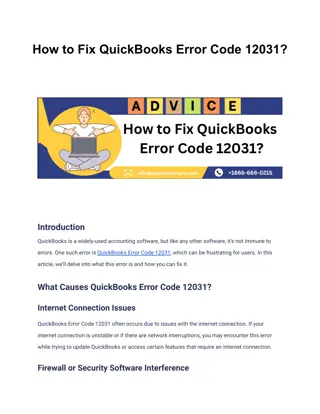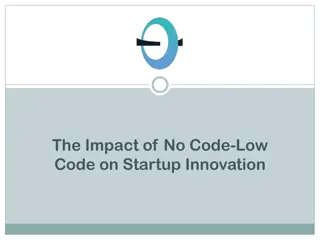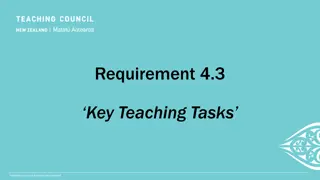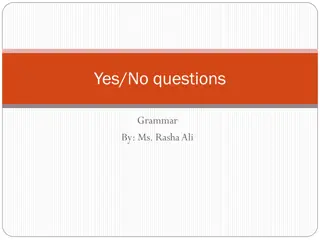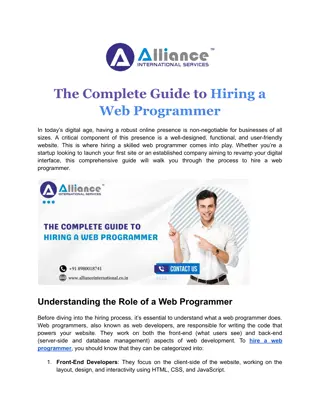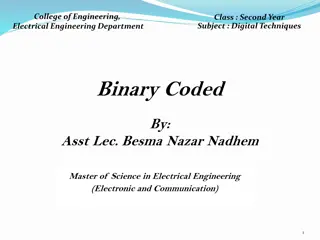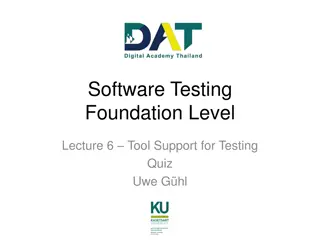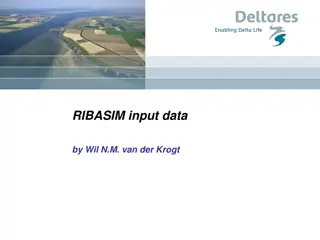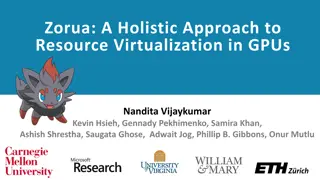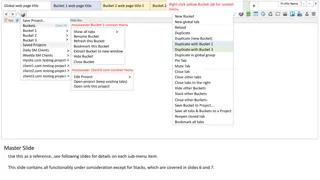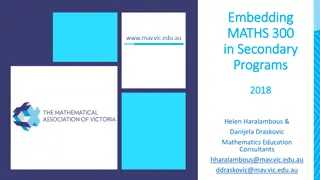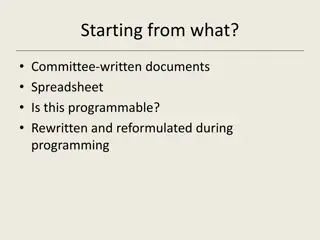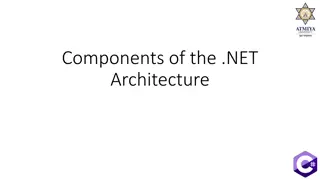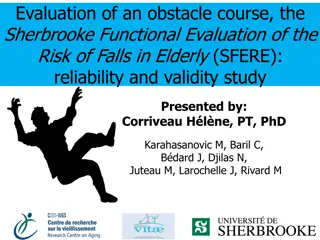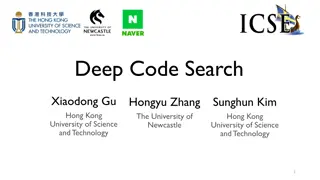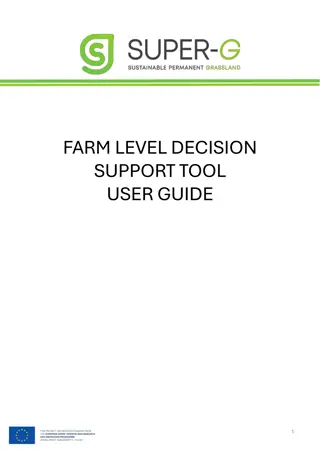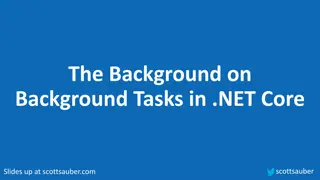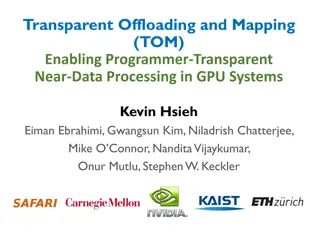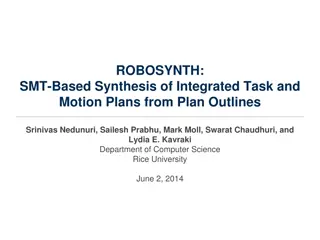Understanding Programmer Questions and Tool Support During Code Evolution Tasks
This study investigates the types of questions programmers ask and how well existing tools support them during software evolution tasks. It introduces a catalog of 44 question types and discusses behaviors observed while answering these questions. The study highlights the gaps in tool support for programmers in this context.
Download Presentation

Please find below an Image/Link to download the presentation.
The content on the website is provided AS IS for your information and personal use only. It may not be sold, licensed, or shared on other websites without obtaining consent from the author. Download presentation by click this link. If you encounter any issues during the download, it is possible that the publisher has removed the file from their server.
E N D
Presentation Transcript
ASKING AND ANSWERING QUESTIONS DURING A PROGRAMMING CHANGE TASK JONATHAN SILLITO, MEMBER, IEEE COMPUTER SOCIETY, GAIL C. MURPHY, MEMBER, IEEE COMPUTER SOCIETY, AND KRIS DE VOLDER Summery By- Fardina Fathmiul Alam , G#01031111 SWE 795, Spring 2017 Software Engineering Environments 1
KEY IDEA: Little is known about the specific kinds of questions programmers ask when evolving a code base and how well existing tools support those questions. To better support the activity of programming, answers are needed to three broad research questions: 1) What does a programmer need to know about a code base when evolving a software system? 2) How does a programmer go about finding that information? 3) How well do existing tools support programmers in answering those questions? This paper undertook two qualitative studies of programmers performing change tasks to provide answers to these questions. Based on these studies, they reported on an analysis of the data. 2
KEY CONTRIBUTIONS: First contribution: A catalog of 44 types of questions programmers ask during software evolution tasks. Second contribution: Description of the observed behavior around answering those questions. Third contribution: Description of how existing deployed and proposed tools do, and do not, support answering programmers questions. Based on these results, this paper has discussed the support that is missing from existing programming tools. 3
PREVIOUS WORKS: Contribution: developing models of program comprehension, which are descriptions of the cognitive processes a programmer uses to build an understanding of a software system how programmers perform change tasks, including how programmers use tools in that context Limitations: do not consider in detail what a programmer needs to know about a code base when performing a change task how the programmer finds that information, nor how well tools support those activities 4
STUDY ONE: LABORATORY-BASED INVESTIGATION Goal: Observe programmers performing significant change tasks using state-of-the-practice development tools. Task: In each session, work on a change task using the Eclipse IDE ( representative of the state-of the-practice) 5
STUDY TWO: INDUSTRY-BASED INVESTIGATION Goal: Observe programmers performing significant change tasks to a software system for which Participants had responsibility. The systems were implemented in a range of languages and the participants used the tools that they would normally use. Task: In each session, the programmer was asked to describe the task he or she had selected and think aloud while working on the task. 6
CATALOG OF QUESTIONS IN CONTEXT Discovering focus points in the graph How a given entity and other entities are related Multiple Relationship between an entity and other entities, about data and control flow How entities relate to each other or to the rest of the system 7
TOOLS SUPPORT FOR ANALYSIS QUESTIONS analyzed the literature on programming tools and techniques for exploring source code. identified tool with support for answering questions determined whether or not tools or techniques exists to address each question. Rated the level of support provided by the best available tool they found as full or partial 9
SUMMARY: THE TECHNIQUES AND TOOLS & THEIR LEVEL OF SUPPORT APPLICABLE TO ANSWERING EACH QUESTION 10
QUESTIONS FOR DISCUSSION Overall reactions Where might the contribution of this paper have the most impact? What the limitations? Are the claims/process about the category of Questions are convincing? What aspect seems the most challenging? 11
